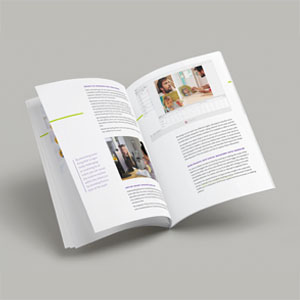Examples of infant behavior research experiments
In infancy you can observe an explosive growth. A lot of researchers focus on this age group and observe parent-infant dyads to get more insight in specific behaviors.
Posted by
Published on
Tue 07 Jul. 2015
Topics

In infancy, you can observe an explosive growth. Many researchers focus on this age group and observe parent-infant dyads to get more insight in specific behaviors. Experiments are often set up to study looking behavior, language acquisition, attachment, or learning behavior.
Look Who's Talking
Who cannot remember ‘Look Who's Talking’ a 1989 movie with Kirstie Alley and John Travolta in which the audience was given an insight into the infant’s thoughts and behaviors? Since a talking infant is something out of a Hollywood movie, today’s researchers have developed a large number of tests or experiments to get a good impression of developmental processes in infancy.
Infant orientation towards their mother
For example, Parade and Leerkes examined associations between marital aggression and infant orienting towards mother when infants are faced with a fearful or frustrating context. They set up an experiment including 92 mothers with their infants.
Infant's responses to the fear task
In the fear task they placed a remote-control truck on a wooden table in front of the infant. The truck approached the infant, made a series of loud sounds with flashing lights, and then backed away from the infant. They repeated this sequence of movements three times over the first 3 minutes of the task. During the last minute of the task the truck was turned off but remained within reach of the infant.
Frustration task
In another task, the frustration task, the infant’s forearms were gently held down by the experimenter. Throughout this task the experimenter held her head down and did not interact with the infant. Infant gaze was continuously coded during each of the tasks using coding software The Observer XT. The researchers coded the following behaviors:
- look at stimulus
- look away from stimulus
- eyes closed
- look at mother
Results of infant observations
So what did they find? Parade and Leerkes conclude that marital aggression was linked with less orienting toward mothers in frustrating situations, in fearful situations marital aggression was linked with less orienting among infants who were high on fear reactivity only.
The researchers explain that it may be the case that infants’ fear cues aren’t picked up by their mothers and that the infants, therefore, rely less on their mothers for assistance in the regulation of their fear.
Reference
- Parade, S.H.; Leerker, E.M. (2011). Marital aggression predicts infant orienting toward mother at six months. Infant Behavior and Development, 34, 235-238.
Related Posts

Measuring parent-infant behavior from another point of view

The role of inhibitory control on substance use in adolescence


